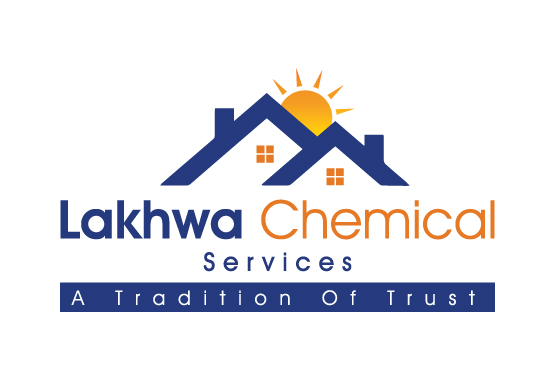RCC roof waterproofing: Process used for concrete flooring
What is RCC roof waterproofing?
Urban construction often comprises of reinforced steel within their skeleton, which makes them endurable for various hardships of weather, strong wind, intense heat and even minor jolts of the earthquake. RCC although known as Reinforced Cement Concrete, which is used on roofs and foundation of various construction as they are in abundance, but like everything else, even RCC concrete has defects. One of which is the incapability of being waterproof. RCC roof waterproofing is an important process used to make it more adequate to endure rainwater or any other form of water pour without crossing into its composition. In this article, we are going to learn about some of the widely used chemical treatments that are quite popular in RCC roof waterproofing work. Let’s see what are they in details.
Read More
Ways to waterproof your bathroom floor in Pakistan
Understanding wall dampness treatment in coastal areas
What causes the bathroom to leak
Importance of RCC roof waterproofing
Before going into the details about what compounds are being used in RCC roof waterproofing in Pakistan, we need to understand the benefits and importance of it first. Unlike other components in a structure, roof holds the most points as being the vulnerable area where most of the water pours down, mostly due to rain, water tank leakage, or during pipe bursts events. If we talk about the industrial and commercial sector, the conditions are more in-depth and avid. If you happen to have the best concrete over RCC structure, no matter its an imported quality or not, concrete is not watertight, which means the liquid component will be absorbed inside the concrete, enabling it to show seepage and leakage after the excess amount of time.
Using RCC roof waterproofing chemical treatment, we can make sure every cracks or mold is properly repairs, and not just for repairs treatment, but you might find it quite useful as water-resistance concrete which helps to prevent an excessive amount of water being transferred inside your home. Either way, RCC roof waterproofing is quite the need of hours, in today’s concrete jungle in which we live in.
Methods used in RCC roof waterproofing
There are various methods used in the process of RCC roof waterproofing as an industrial standard. Below are some of the process used for concrete flooring.
1.Cementitious waterproofing
Cementitious waterproofing is usually being used in the internal rooms not exposed to sunlight. It is easily available from masonry shops and being pours over wet areas such as the bathroom. Being a special type of concrete, this method is used during the construction of any structure, which makes it quite difficult if you need to pour down the chemical treatment on the go. Although effective as they come, Cementitious waterproofing can be used on every RCC concrete flooring as they can easily get situated from the material and makes sure no wet surface can get into the way of the floor once it’s all set up.
2.Liquid Waterproofing Membrane Process
A more flexible type of RCC roof waterproofing method that can directly be used over the roof is called the liquid waterproofing membrane method. Made from polymer usually modified asphalt, the retaining prowess of waterproofing membrane is around 280% which is quite on the high side. The substances although made from simple elongation properties, but carries much more unique elements such as several primer coats for around two top coats that can be sprayed or either roller into the rooftop or simply used through trowel compound.
Read More
How to repair an underground water tank using waterproofing
How to fix leaking water tank
How metal gutter helps corrugated sheet from leakage
3.Bituminous Coating Waterproofing Process
A very good waterproofing agent which is widely used on homes, commercial and industrial sector around the globe. Bituminous coating waterproofing is black in color and made from reinforced fiber element called asphalt. The coat not only protects from water leakages and seepage in concrete flooring and foundations but also increases the life of the structure. Although effective in nature, bituminous coating waterproofing is quite reactive with direct sunlight as an increase in heat can make it moist and fragile. For RCC roof waterproofing, the bituminous coating is accompanied by secondary more flexible material which has huge boiling point such as acrylic or polyurethane polymers which can sustain a high amount of heat from direct sunlight.
4.Bituminous Membrane Waterproofing Process
Best suited for RCC roofs either it’s flat or sloped, a bituminous membrane is compounds made up from asphalt, filler, and polymers, blow-torched as to join from the surface using self-adhesive mechanism. Unlike ordinary coat paint, the bituminous membrane can withstand harsh weather without any decrease in its performance. The RCC roof waterproofing contractor has to make sure that application of membrane is also accompanied with at least one protective layer at the top in order to protect the membrane from puncture.
Conclusion
The above-mentioned process for RCC roof waterproofing is quite widely used one in Pakistan, as they are generally more economically valued and many waterproof contractors in Karachi can be located without a worry. For anyone who’s looking to have an RCC roof waterproofing service in Pakistan, make sure you call Lakhwa Chemical Service for a free inspection and estimation.




Leave a Reply
Want to join the discussion?Feel free to contribute!